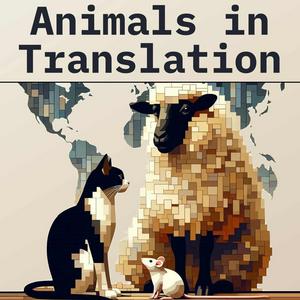Kerri and Sophie delve into the overlooked issue of sheep fatigue during transport with special guest Katia Colitti. Katia is a lawyer and writer whose work has been published in Animal Welfare (Cambridge University Press), Global Journal of Animal Law, and European Competition Journal. She grew up in Ukraine, spent over a decade in the U.S., and, since 2012, is based in Belgium. Katia holds an MSc in international animal welfare, ethics, and law, a JD, an MA in economics for competition law, and a BA in Political Science. She writes on Substack about cat health and welfare, the human-cat relationship, and cat loss grief.
Katia shares insight from her paper Sheep Fatigue During Transport: Lost in Translation? in which she used Reflexive Thematic Analysis, a qualitative research method rooted in psychology, to investigate stakeholder's understanding of sheep fatigue and how it relates to welfare issues of exhaustion, stress, and sensory overload. She discusses the theme of anthropomorphism and its differing subsets: anthropocentric anthropomorphism, animal centric anthropomorphism, and heuristic anthropomorphism. Katia found anthropomorphism common within stakeholder's interpretation of sheep experience and notes how it may be used to help shape public policy within animal welfare. They discuss the challenge with this prey animal's stoic appearance and how QBA (qualitative behavior analysis) may help identify the subtle cues of fatigue in sheep while being transported. Listeners will also learn about the complexities of intercontinental live animal transport in this episode of Animals in Translation.
Get full access to Animals in Translation at animalsintranslation.substack.com/subscribe


